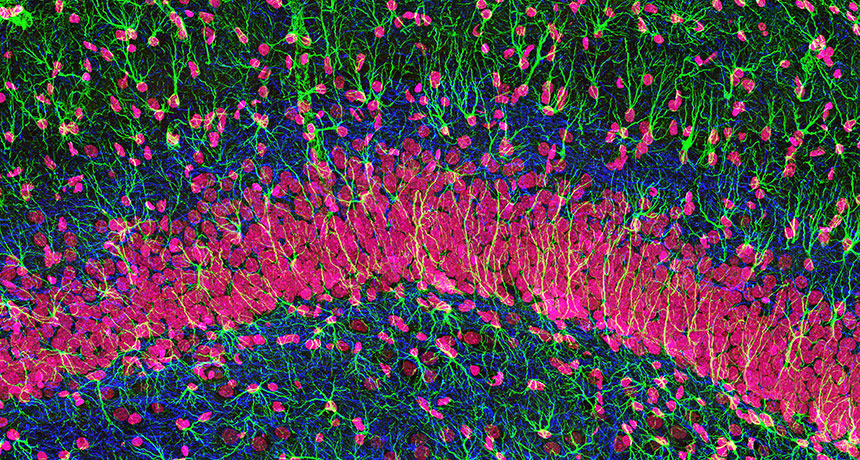
In stark contrast to earlier findings, adults do not produce new nerve cells in a brain area important to memory and navigation, scientists conclude after scrutinizing 54 human brains spanning the age spectrum.
The finding is preliminary. But if confirmed, it would overturn the widely accepted and potentially powerful idea that in people, the memory-related hippocampus constantly churns out new neurons in adulthood. Adult brains showed no signs of such turnover in that region, researchers reported November 13 at a meeting of the Society for Neuroscience in Washington, D.C.
Previous studies in animals have hinted that boosting the birthrate of new neurons, a process called neurogenesis, in the hippocampus might enhance memory or learning abilities, combat depression and even stave off the mental decline that comes with dementia and old age (SN: 9/27/08, p. 5). In rodents, exercise, enriched environments and other tweaks can boost hippocampal neurogenesis — and more excitingly, memory performance. But the new study may temper those ambitions, at least for people.
Researchers studied 54 human brain samples that ranged from fetal stages to age 77, acquired either postmortem or during brain surgery.
These samples were cut into thin slices and probed with molecular tools that can signal dividing or young cells, both of which are signs that nerve cells are being born.As expected, fetal and infant samples showed evidence of both dividing cells that give rise to new neurons and young neurons themselves in the hippocampus. But with age, these numbers declined. In brain tissue from a 13-year-old, the…
The post Study casts doubt on whether adult brain’s memory-forming region makes new cells appeared first on FeedBox.